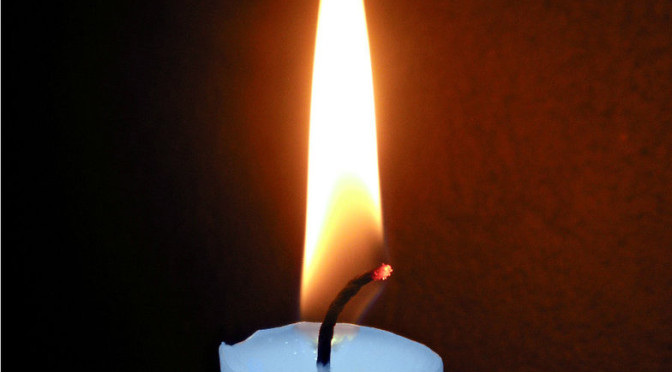Caitlin Trussell with Augustana Lutheran Church on November 19, 2023
[sermon begins after one Bible reading – see end of sermon for the Zephaniah reading]
Matthew 25:15-30 [Jesus said to the disciples:] 14“For it is as if a man, going on a journey, summoned his slaves and entrusted his property to them; 15to one he gave five talents, to another two, to another one, to each according to his ability. Then he went away. 16The one who had received the five talents went off at once and traded with them, and made five more talents. 17In the same way, the one who had the two talents made two more talents. 18But the one who had received the one talent went off and dug a hole in the ground and hid his master’s money. 19After a long time the master of those slaves came and settled accounts with them. 20Then the one who had received the five talents came forward, bringing five more talents, saying, ‘Master, you handed over to me five talents; see, I have made five more talents.’ 21His master said to him, ‘Well done, good and trustworthy slave; you have been trustworthy in a few things, I will put you in charge of many things; enter into the joy of your master.’ 22And the one with the two talents also came forward, saying, ‘Master, you handed over to me two talents; see, I have made two more talents.’ 23His master said to him, ‘Well done, good and trustworthy slave; you have been trustworthy in a few things, I will put you in charge of many things; enter into the joy of your master.’ 24Then the one who had received the one talent also came forward, saying, ‘Master, I knew that you were a harsh man, reaping where you did not sow, and gathering where you did not scatter seed; 25so I was afraid, and I went and hid your talent in the ground. Here you have what is yours.’ 26But his master replied, ‘You wicked and lazy slave! You knew, did you, that I reap where I did not sow, and gather where I did not scatter? 27Then you ought to have invested my money with the bankers, and on my return I would have received what was my own with interest. 28So take the talent from him, and give it to the one with the ten talents. 29For to all those who have, more will be given, and they will have an abundance; but from those who have nothing, even what they have will be taken away. 30As for this worthless slave, throw him into the outer darkness, where there will be weeping and gnashing of teeth.’ ”
[sermon begins]
As gospel writers go, Matthew weaves subtlety with shock value which can make it hard to see his point. Matthew begins his gospel with a mind-numbing list of names that add up to fourteen generations of Jesus’ ancestors.[1] No angels, shepherds, or manger in his story, that’s for sure. Yet, if your attention drifts away from the names even for a moment, you’d miss major plot twists, including a woman who wasn’t born Jewish and a woman who was a prostitute. Our 21st century minds aren’t shocked but our 1st century friends may have been. In our Matthew reading today, the opposite happened. Our ancient friends may have been lulled into complacency by the trope of a powerful person trusting their underlings as a test of character.[2] These stories were common in the first century as regular people had a chance to shine. Jesus subtly wove this well-known trope with the shock value of an enormous amount of money, a talent was 15 years of wages, and the fearful slave who buried his talent, having nothing to show the master when he came back from his journey, and was thrown into the outer darkness. The man who went on a journey was excessive in money and trust.
What is a Jesus follower to make of his last few teachings in Matthew’s gospel? Each parable tops the last. Next Sunday, they’ll crescendo in intensity. Jesus was wound up tighter than a ranting Bronco fan. Although let’s give Jesus the benefit of the doubt, shall we? These intense parables continue to escalate because time was running out. He was about to be arrested. I wonder how desperate Jesus was for his disciples to understand his urgency. Things were about to get as real as they were horrific. Still, Jesus’ teaching was first about how generous the man was, how much he wanted to share with his slaves, and how much he trusted them to carry on his work in his absence. The man’s excessive expectation inspired the first two slaves into action and froze the last one in fear. Remember the limits of parable. These parabolic stories only take us so far in teasing apart God’s action in Jesus and in the world. It’s highly likely that Jesus’ parable of the talents is meant more to inspire us than to make us afraid. Fear is not freedom and is not consistent with Jesus’ message in Matthew in which he says many times, “Do not be afraid.” Fear doesn’t get anyone anywhere especially in the kingdom of God that Jesus said is about mercy.
Two weeks ago, we heard Jesus’ teaching on the nine Beatitudes.[3] He began each Beatitude with “Blessed are…” and he shocked his listeners by listing experiences that don’t seem at all blessed and connecting them with mercy, comfort, and the kingdom of heaven. (This is another example of the subtlety and shock value of Matthew’s gospel.) Today’s parable invites action by the journeying man’s abundance not anger. In the verses after our parable today, the ones for next Sunday, Jesus doubles down on God’s mission of mercy. And God’s mercy doesn’t have time for fear. Fear gets us nowhere.
Last Thursday, I was part of a Multi Faith Leadership Forum conversation with about 20 other faith leaders. Jews, Muslims, Christians, and more, spoke carefully and honestly about our own emotions and thoughts about October 7 and the Hamas attack that victimized innocent Israeli men, women and children – mostly Jews but also people from other places – and about the Israeli military response that victimizes innocent Palestinian men, women, and children. Words are failing them. Our collective words are failing them and have been failing them. So much so that violence is increasing in our own country and in our own city against Jews, Muslims, and Arabs. While many are demonstrating and while many others are protesting, words continue to fail.
I myself love words and I struggle to find the right ones as adults and children and families continue to fall and to be afraid. I have Jewish family and friends. I have Palestinian friends and colleagues. I am no fan of the current Israeli government. I am no fan of Hamas. Sides are being taken and demanded. But still, there are Israeli and Palestinian families of the fallen who are searching for a way beyond sides. There are other Palestinian-Israeli groups looking for a way beyond sides. There are multi faith leaders who are searching for a way beyond sides. And in today’s reading, I hear Jesus tell a story, a parable, about a man whose generosity inspires some and whose trust terrifies others. One interpretation of this parable is that Jesus’ mission of mercy is meant to expand, not to be buried in the ground.
It’s in that spirit that Augustana is hosting a service for the multi faith community. As words fail, we are invited to create a sacred space with our shared humanity across religious and political differences. This service was generated by conversations with faith leaders and lay people – Jews, Muslims, and Christians – who are in pain, grieving, and unable to see a way forward from war to peace, from death to life, from despair to hope. Their feedback supported the attempt of such a service, recognizing that any effort to hold space for everyone’s grief and humanity will be insufficient for some. Invitations to this service are between faith leaders and their communities. No publicity. No livestream. Only people and presence. You’re invited. As words fail us, we’ll gather in the silence of our shared presence and in the presence of God. This building, the quiet, the music, and the candles are merely a container for the heartbroken and for the determined to hold space for our shared humanity made in the image of God.
Last Sunday, Pastor Gail mentioned compassion fatigue. Compassion fatigue is real. Our fragile bodies aren’t built to feel the feels about everything that’s happening in the world all at the same time. That’s a fast track to despair. Neither are we to be complacent in the suffering, to shrug off another human’s pain, to hide from suffering or to bury our heads in the ground as if it doesn’t exist. The reading from the prophet Zephaniah is the only reading we ever get from this prophet’s small book in the minor prophets of the Old Testament. There’s a great line about God’s frustration with God’s people in which the Prophet Zephaniah accuses the people who “rest complacently on their dregs.” Jesus’ way of mercy resists complacency and self-righteousness.
Jesus asks his followers to risk within and beyond the Christian freedom and abundance we’ve been given as his body in the world for the sake of the world. May God give us light to see the way, courage to take a risk, and trust in the love that transforms death into life. Thanks be to God. And amen.
_________________________________________________
[1] Matthew 1:1-15
[2] Matt Skinner, Professor of New Testament, Luther Seminary, St. Paul, MN. Commentary on the Bible readings for November 19, 2023. Sermon Brainwave Podcast. workingpreacher.org/podcasts/932-25th-sunday-after-pentecost-ord-33a-nov-19-2023
[3] Matthew 5:1-12
_________________________________________________
Zephaniah 1:7, 12-18
7Be silent before the Lord God!
For the day of the Lord is at hand;
the Lord has prepared a sacrifice,
he has consecrated his guests.
12At that time I will search Jerusalem with lamps,
and I will punish the people
who rest complacently on their dregs,
those who say in their hearts,
“The Lord will not do good,
nor will he do harm.”
13Their wealth shall be plundered,
and their houses laid waste.
Though they build houses,
they shall not inhabit them;
though they plant vineyards,
they shall not drink wine from them.
14The great day of the Lord is near,
near and hastening fast;
the sound of the day of the Lord is bitter,
the warrior cries aloud there.
15That day will be a day of wrath,
a day of distress and anguish,
a day of ruin and devastation,
a day of darkness and gloom,
a day of clouds and thick darkness,
16a day of trumpet blast and battle cry
against the fortified cities
and against the lofty battlements.
17I will bring such distress upon people
that they shall walk like the blind;
because they have sinned against the Lord,
their blood shall be poured out like dust,
and their flesh like dung.
18Neither their silver nor their gold
will be able to save them
on the day of the Lord’s wrath;
in the fire of his passion
the whole earth shall be consumed;
for a full, a terrible end
he will make of all the inhabitants of the earth.


![Saints in Light [OR The Mystery of Connection Through Death] Matthew 5:1-12](http://caitlintrussell.org/wp-content/uploads/2023/11/Communion-of-Saints.Elise-Ritter.sermon-Caitlin-Trussell.jpg)

![Generosity and Connection: The Antidote to Greed and Despair [OR The Parable of the Rich Fool] Luke 12:13-22, Ecclesiastes and Psalm 49](http://caitlintrussell.org/wp-content/uploads/2022/07/Generosity-by-Stig-Lofnes-oil-on-canvas-672x372.jpg)
![Practical Hope for Life Today [OR Listen, God is Calling] Mark 6:14-29 and Ephesians 1:3-14](http://caitlintrussell.org/wp-content/uploads/2021/07/receipt-hands-sermon-caitlin-trussell-672x372.jpg)
![Knowing Enough to Hope [OR Knowing Enough to Be Dangerous] Romans 5:1-8](http://caitlintrussell.org/wp-content/uploads/2020/06/Peony-bouquet-2020-672x372.jpg)

![The Life of the Party [Proverbs 9:1-6, John 6:51-58]](http://caitlintrussell.org/wp-content/uploads/2018/08/Aretha-Franklin-2008-inauguration.sermon-caitlin-trussell-672x372.jpg)
![Pops, Purity, and Promise [I Promise It’s Not What You Think] Matthew 5:1-12 and 1 John 3:1-3](http://caitlintrussell.org/wp-content/uploads/2017/11/1726618-John-Green-Quote.Perfect.Flawed.Loving.sermon-Caitlin-Trussell-672x372.jpg)
![Suffering Defies Logic [OR Mondo Cozmo Answers the Religious Question] Matthew 16:21-28 Romans 12:9-21 Exodus 1:22-2:10](http://caitlintrussell.org/wp-content/uploads/2017/09/theatlantic.umbrella.hurricane-harvey.sermon-Caitlin-Trussell-672x372.jpg)